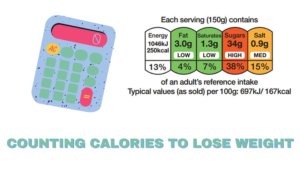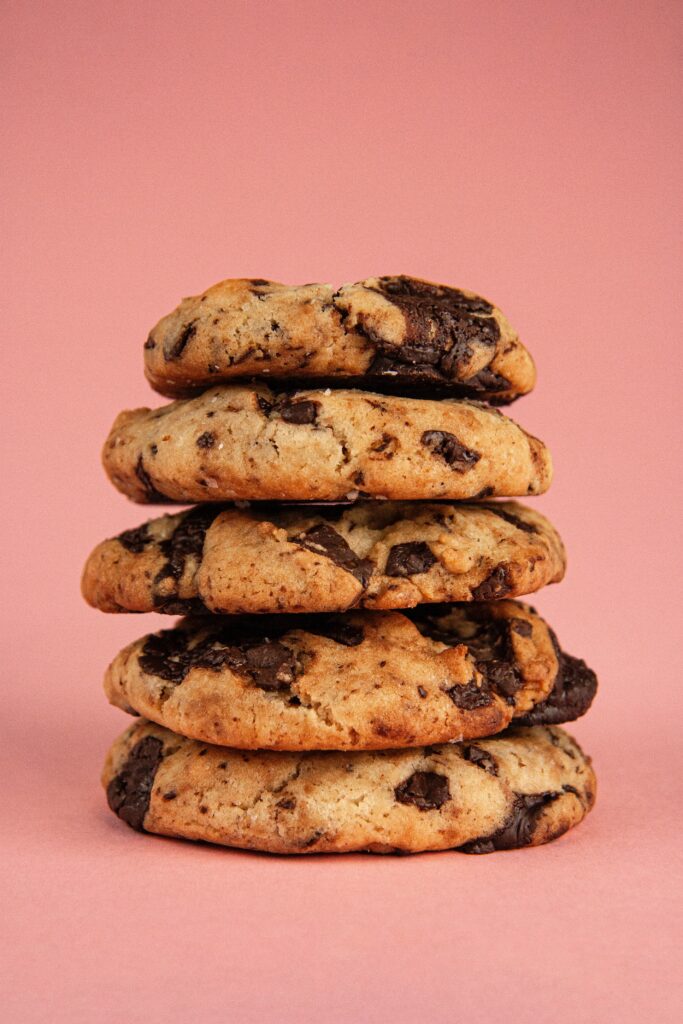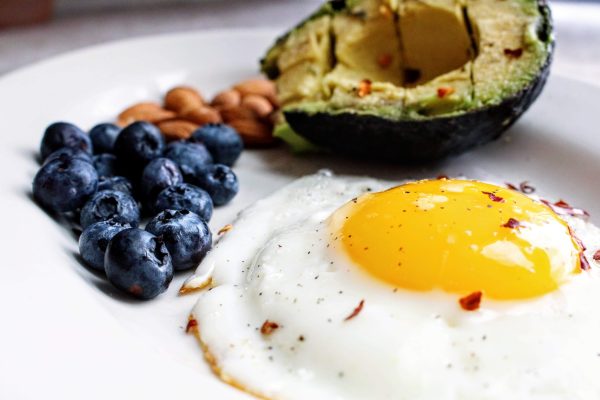What calorie calculator will not say
Did you know most people who try to lose weight by counting calories fail miserably?
It’s true.
Some of them even gain more fat and most of them give up this idea after a few weeks.
We all fail.
Our diets are failing.

How to count calories to lose weight – a mistake you need to avoid
Once you start to wonder. How many calories should I eat to lose weight?
“You need to reduce your calorie intake by 500 calories or whatever.”
That’s a common mantra.
Popular boring diets usually don’t dare you to eat over 1200 -1500 kcal per day.
They still have daily calorie reduction plans for you.
How many calories should I burn?
Ah, you want to know the number, I see.
You are looking for something specific, something more individual. What about the Harris-Benedict equation?
BMR* = 655 + ( 4.35 × weight in pounds ) + ( 4.7 × height in inches ) – ( 4.7 × age in years )
BMR X Activity Level= Calories your body burns each day
How many calories should I eat to lose weight calculator* for women
- Little or no exercise: Activity Level = 1.2
- Light exercise (1 to 3 days per week): Activity Level= 1.375
- Moderate exercise (3 to 5 days per week): Activity Level = 1.55
- Hardcore exercise (Daily): Activity Level =1.95
- Heavy exercise (6 to 7 days per week): Activity Level = 1.725
- Hardcore exercise (Daily): Activity Level =1.95
Your BMR (Basic Metabolic Rate) is the number of calories your body burns by the only existing – not doing anything. If you lay in bed all day and do not move, this is how many calories your body would burn.
This formula calculates how many calories you specifically, depending on your level of activity, burn each day. The more active you get, the more calories you burn (oh!).
Result the equation would be different from sitting in the office all day than running 10 thousand 5 times a week.
Calorie deficit calculator
If you are lazy, go to Google right now, look up a calorie deficit calculator, and back.
All calorie calculators do it in accordance with this formula.
They tell you a magic number of a calorie deficit to lose weight.
Knowing anything about you, just asking about your weight, height, age, and expected activity level.
Sounds a bit weird, huh?
This is how it works.
I’m talking about the formula that Mr. Harris and Mr. Benedict introduced in 1919.
Yes, modern calorie calculators ignore scientific studies of the past hundred years.
The number you get at the end of the equation Harris Benedict is the number of calories you should eat daily to keep your weight at this lifestyle.
How many calories should you eat in a day to lose weight?
But I do not want to keep the weight! I need to lose fat!
That is why you need a calorie deficit.
What is written in every corner: To lose a pound of body fat, you must shave 3500 calories from your diet.
That’s 500 calories a day to lose 1 lb in a week.
Ooh, hello 500 Cal deficit. You remember this mantra, right?
Next, you download an app to count calories and do your calculations for each food intake, snack and drink.
Don’t forget to buy a couple of scales. You should know not just your weight, but the weight of your food as well.
Oh, Labels are an additional challenge. Start reading them, please. It’s not going to be easy because they typically use so small font sizes.

What the hell is that? Energy = 1046kJ or 250 kcal.
Do you have any idea what this means? Are you sure about that?
What are calories in food? – for dummies
The 4.184 KJ is the energy to heat up 1 litter of water by 1 degree C.
1kCal = 4.184 KJ
How it works.
Scientists use a bomb calorimeter. This device helps to figure out calories in food. They put the food in the capsule and have basically a little explosion and there’s water surrounding this capsule. How much it heats up the water is how many calories there are.
One bad thing with this measure calories method happens here. There is at least 20 – 25% error in those numbers.
Now, when you see how many calories are on a small label, you should understand this.
One more bad news for you. Our bodies are not the bomb calorimeters. We don’t operate that way like this device.
We are organic matter, so we do not burn our food in our stomachs.
You didn’t uptake every calorie that’s on your labels. That is what people don’t get.
Your favorite calorie-counting app does not measure what your body actually absorbs these calories.
You count an abstract amount of calories that you put in your mouth, thinking that is matter.
Here’s What You Really Need To Know About Calories
You actually have two concerns:
1. How many calories your body is going to absorb?
2. What happened to food once metabolized?
When you consume the food with additional fibber you absorb about 35% percent less.
Highly processed foods change the way that we utilize food, and that goes against the idea that a calorie is a calorie.
“Ready-to-eat foods have been designed based on the insane amount of trans fat, sugar, sweeteners, artificial colors, flavors and preservatives that promote shelf stability, preserve texture and improve palatability. ”
My freely interpretation of the Harvard’s definition of highly processed foods
Who pays attention to your health?
Robert H. Lustig, American Paediatric Endocrinologist, Professor, University of California, San Francisco (UCSF) describes trans fats as a consumable poison in his book Metabolical: The Lure and the Lies of Processed Food, Nutrition, and Modern Medicine, 2021.
Trans fats are like any other fat in terms of bomb calorimeters. But trans fats are the devil incarnate because our body can’t metabolize them.
What happens is that trans fats line your arteries.
Just because they have nine calories per gram does not matter. They are consumable poison and that is why they must come out of the food.
The caloric equivalent and the metabolic equivalent of your given food have nothing to do with each other.
Different foods convey different disease potentials and none of this has anything to do with calories.

The old mantra is a calorie is a calorie
Many medical and dietary gurus still spouse that.
Okay. You take 100 calories by eating cookies.
You are clever enough to choose something trans-fat-free and tasty. Perhaps your mother did it for you. Blending sugar, eggs, flour, butter, chocolate chips, and other secret ingredients from the family, who knows?
While you are enjoying your snack and trying not to feel bad about it at the same time, your body has a decision to take, “Should I store that as body fat or should I burn it for energy or perhaps increase body heat production?”
Depends on what your body will do with these 100 calories you can either become fatter or have a bit more energy during the day.
What your body is going to do depends upon several things:
What are you eating? What are you drinking? When are you eating? What kind of situation is it? Are you all right? Stressed? Depressed? Why are you eating? Are you hungry or something?
To answer your body is going to check:
- Your metabolism rate
- Your blood sugar level
- Your insulin level
- Your sex hormones
- Your level of thyroid hormone
- Cortisol, leptin, and growth hormone also
- Your body temperature
- And other stuff as well
Connection between your nervous system and fat is also important
Your brain cells can call to your fat and ask to go to hell.
Yes, we are talking here about connectivity between your nervous system and fat.
“Neurons connect to your body fat and can change the probability that body fat will be burned or not. So your nervous system is the master controller of this process, and it plays a strong role in the calories out, the calories burned component.”
Andrew D. Huberman, American Neuroscientist, professor Stanford University School of Medicine.
Counting calories to lose weight is the wrong way
Calories are worse than useless. It’s an old idea that well-cultivated.
Well, that won’t help.
And if you are still asking yourself, how many calories should I eat to lose weight:
Give it a rest.
You need to know something fresh, you need more information.
By the way, check My Secret Fat Camp List
FAQ Section
Question: How many calories should a woman eat per day to lose weight?
The number of calories a woman should consume per day to lose weight depends on various factors, including her age, weight, height, activity level, and overall health. However, a general guideline is to create a calorie deficit of 500 to 1,000 calories per day to achieve a safe and sustainable weight loss of about 1 to 2 pounds per week.
Question: How many calories should I eat per day to lose weight?
To determine the number of calories you should consume to lose weight, it’s important to consider your individual circumstances. Factors such as your age, weight, height, activity level, and metabolic rate play a role in determining your calorie needs. It is recommended to consult with a healthcare professional or a registered dietitian who can assess your specific needs and provide personalized guidance.
Question: How many calories should a 55-year-old woman eat to lose weight?
For a 55-year-old woman who wants to lose weight, the calorie intake will depend on her individual factors, including weight, height, activity level, and overall health. It is advisable to consult with a healthcare professional or a registered dietitian who can evaluate your specific needs and design a weight loss plan tailored to you.
Question: How many calories should a 60-year-old woman eat to lose weight?
The calorie needs of a 60-year-old woman who wants to lose weight can vary depending on her specific circumstances. Factors such as weight, height, activity level, and metabolic rate are essential considerations. It is recommended to seek guidance from a healthcare professional or a registered dietitian who can provide personalized advice and help create a suitable weight loss plan for you.
Question: Are 1200 calories enough for a 60-year-old woman?
The adequacy of a 1200-calorie diet for a 60-year-old woman depends on several factors, such as her weight, height, activity level, and overall health. While 1200 calories may be appropriate for some individuals, it is crucial to ensure that the diet provides all necessary nutrients. Consulting with a healthcare professional or a registered dietitian is highly recommended to determine if a 1200-calorie diet is suitable for your specific needs and goals.
Question: Are 1200 calories enough for a woman?
Whether 1200 calories is enough for a woman depends on various factors, including her age, weight, height, activity level, and overall health. While 1200 calories may be appropriate for some individuals, it is important to ensure that the diet is balanced and provides all essential nutrients. It is recommended to consult with a healthcare professional or a registered dietitian to determine the appropriate calorie intake for your specific circumstances and weight loss goals.




